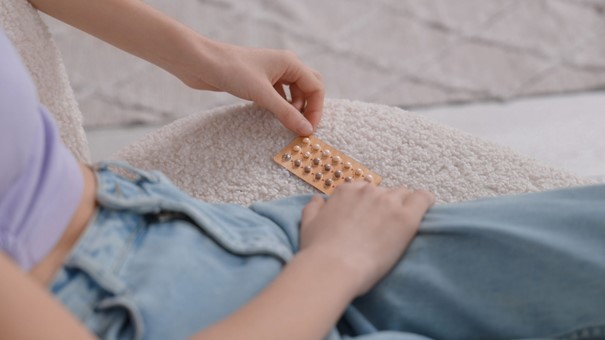
The Pill and Its Side Effects – What to Know
The Pill and Its Side Effects: What to Know and How to Support Your Body
The contraceptive pill is a convenient and popular choice – but did you know it affects your body in various ways? Don’t worry, we’re here to explain the most common side effects and share tips on how to keep your body balanced while using hormonal contraception.
1. Minor Symptoms, Major Impact
Many women experience headaches, mood swings, spotting, or breast tenderness. A drop in libido is also common. Sound familiar? These side effects are not unusual and can often be improved with small lifestyle adjustments.
2. Rare but Serious Risks
Did you know that the pill can increase the risk of thrombosis and embolism? This includes deep vein thrombosis, strokes, and heart attacks. Sudden vision problems or high blood pressure could be warning signs – if you notice them, see a doctor immediately!
3. Your Liver is Working Overtime
Since the pill is processed through the liver, it can put extra strain on this vital organ. Over time, this may lead to issues like gallbladder problems or even liver damage. Support your liver by staying hydrated and eating a nutrient-rich diet.
4. Could You Be Lacking Essential Nutrients?
Taking the pill can increase your body’s demand for certain vitamins and minerals – particularly vitamins B6, B9, B12, C, and E, as well as magnesium and zinc. A balanced diet and high-quality supplements can help fill these gaps.
5. Thinking Long Term
Some studies suggest that the pill may slightly raise the risk of certain cancers, such as breast or cervical cancer. On the other hand, it can also reduce the risk of ovarian cancer. The best approach? Talk to your doctor to understand the potential risks and benefits for you.
6. How’s Your Thyroid?
The hormones in the pill can influence thyroid function. If you’re suddenly feeling fatigued or low on energy, it might be worth getting your thyroid levels checked. A healthy thyroid is key to overall wellbeing.
7. What You Can Do
Regular check-ups with your doctor are essential, but there’s also a lot you can do yourself: maintain a balanced diet, stay active, get enough sleep, and manage stress levels. Supporting your body with the right supplements can also make a difference.
Don’t forget to follow us on social media and subscribe to our newsletter – stay informed and make the best choices for your health! 🌸✨
